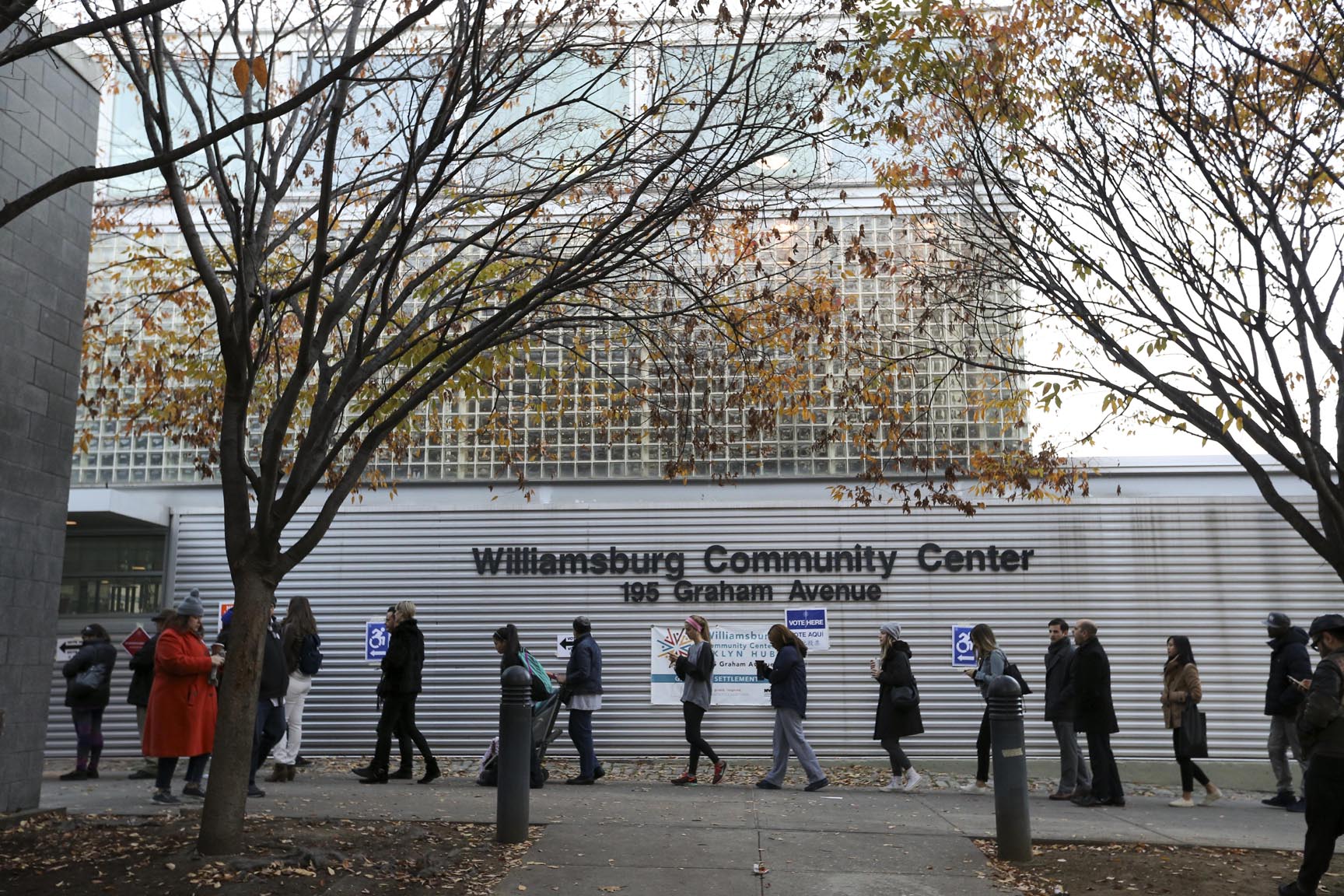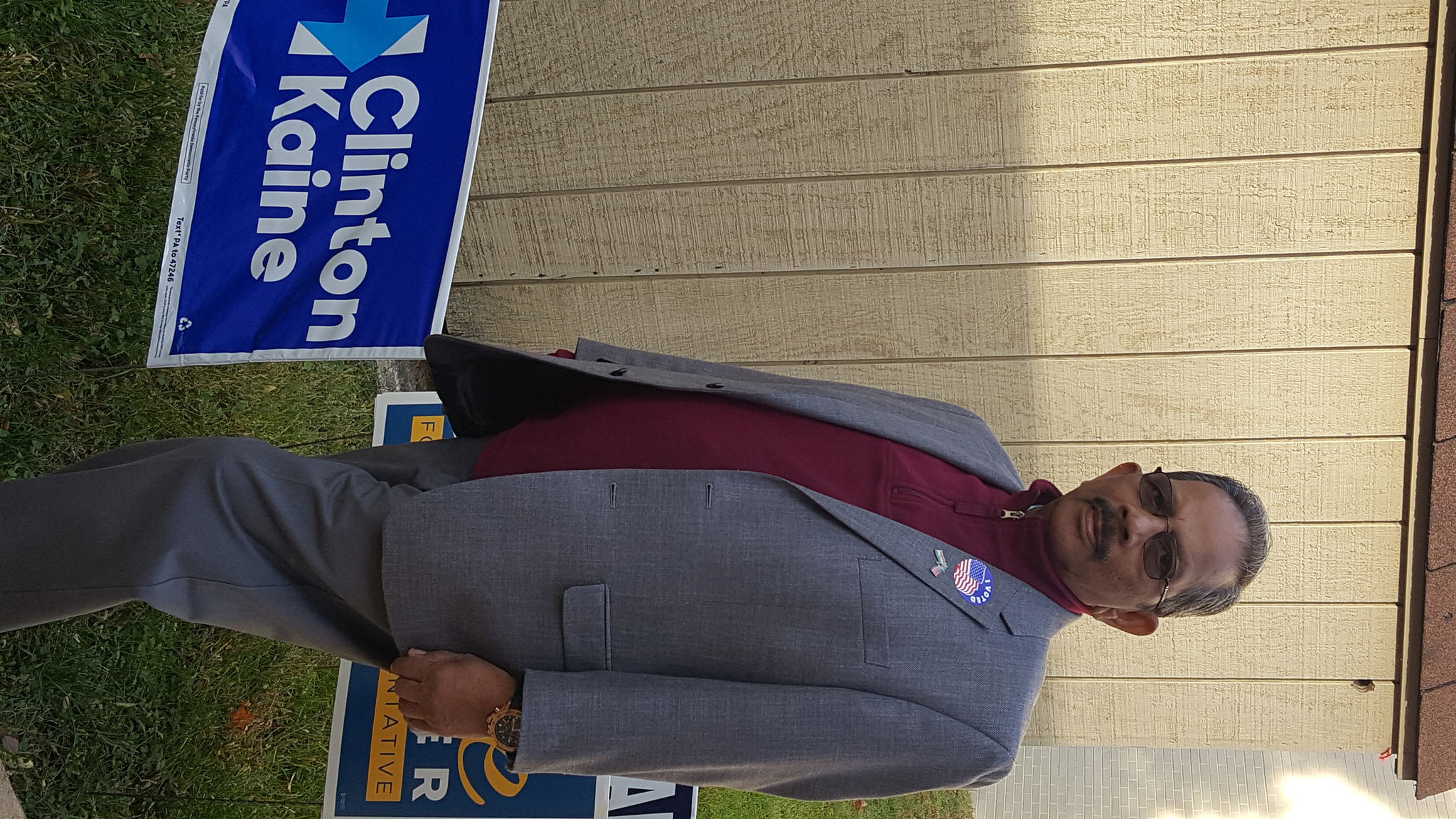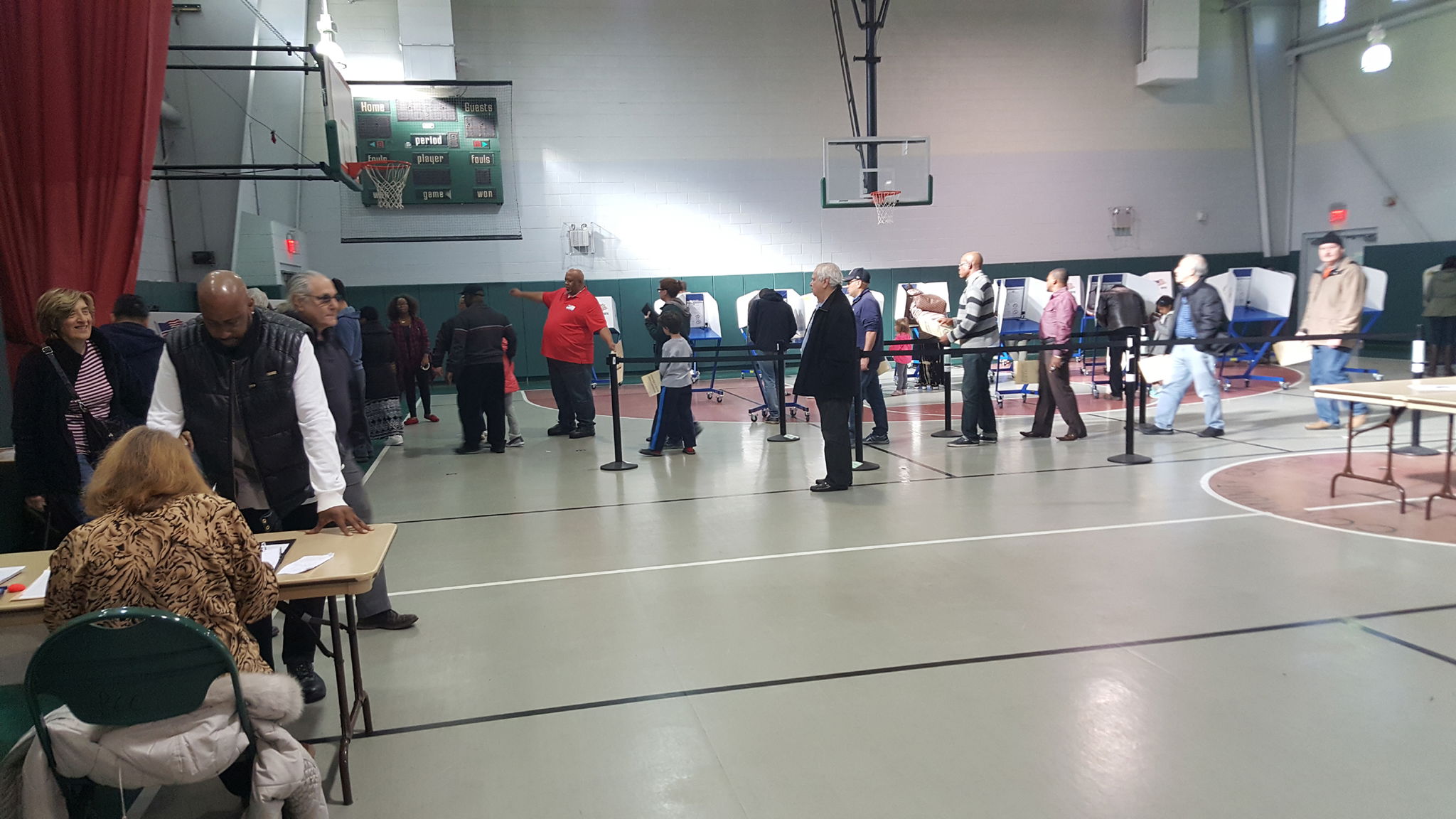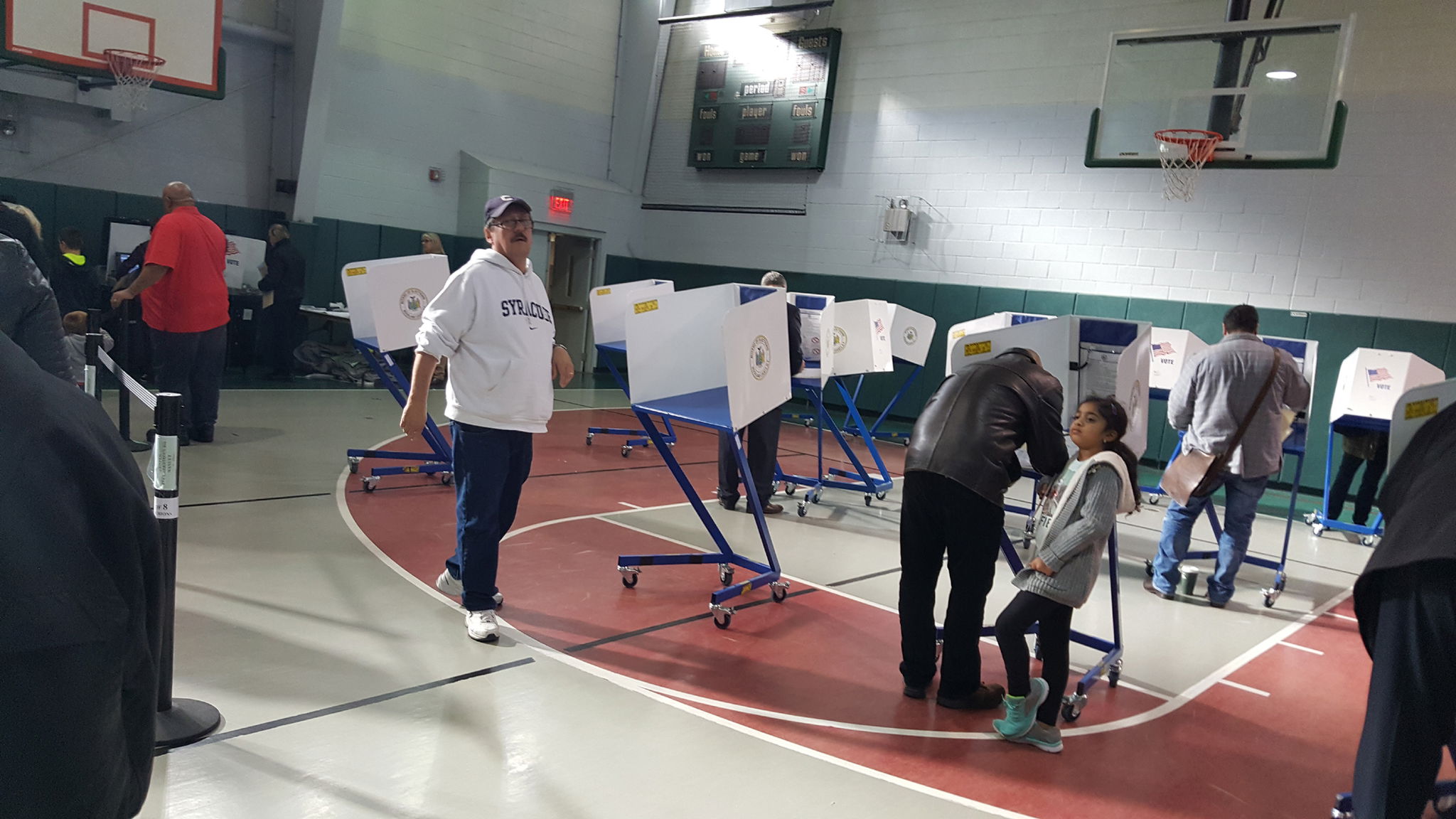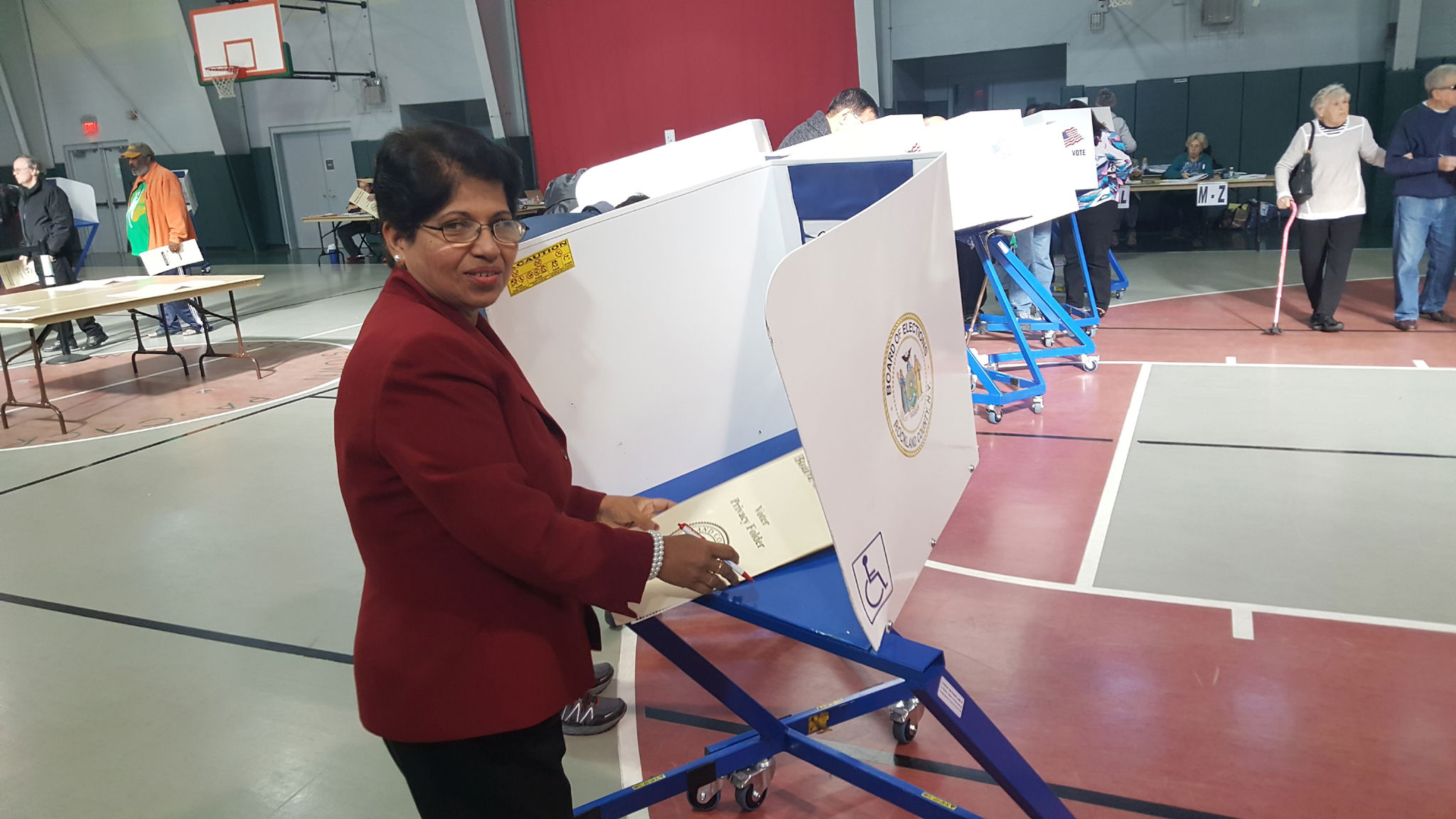Headlines
Americans turn out in large numbers to vote for president after divisive, nasty campaign
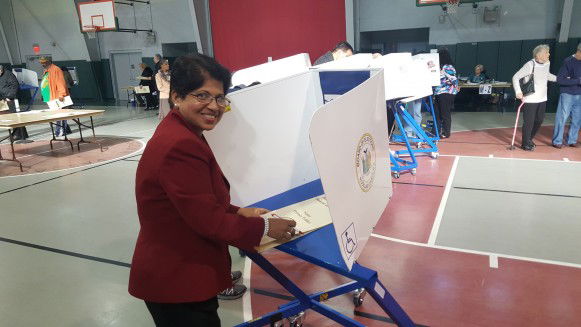
New York/Washington, Nov 8 : Americans went to the polls in large numbers on Tuesday after a bitter, divisive presidential campaign that reached its peak Monday night at a star-studded rally for Democrat Hillary Clinton and at a theatrical assembly for Republican Donald Trump.
Clinton running to be the first woman president on a platform of "Stronger Together" was ahead in opinion polls by an average of 3.3 percent, a slim lead over Trump, whose message was "Make America Great Again".
Initial news reports indicated that this election may see a high voter turnout. News programmes across the country showed long lines of voters as polling began.
Around 90 million voters are expected to cast their votes to elect the country's 45th president.
Voters are also to cast ballots for vice president, their representatives in Congress and Senate and other elected officials. Also on ballots are various proposals, called propositions, for legal changes in several states
East Coast states have already kicked off with voting on in Florida, Delaware, Georgia, Illinois, Louisiana, Massachusetts, Maryland, Michigan, Missouri, New Hampshire, Pennsylvania, Rhode Island, South Carolina and Tennessee.
The three sleepy hamlets in rural New Hampshire, with their residents fewer than 100, became the first to cast their ballots.
In Dixville Notch, Clinton beat Donald Trump 4-2. Libertarian Gary Johnson received one vote, and the 2012 Republican candidate, Mitt Romney received a surprise write-in ballot.
In the slightly larger burg of Hart's Location, Clinton won with 17 votes to Trump's 14. In Millsfield, Trump won decisively, 16-4.
Polls in most areas open at either 6 a.m. or 7 a.m., while poll closing times range from 6 p.m. to as late as 9 p.m. local time.
Clinton and husband and former President Bill Clinton turned up at their local voting booth in Chappaqua, New York, to vote. Voters cheered as the duo arrived, but Hillary didn't speak to media, though she waved.
Many people crowded around her with cellphones taking photos.
In Florida, the biggest swing state in the country, 50 per cent of the state's 13 million voters have cast their vote.
The election is also a national referendum on the establishment as the media, cultural and entertainment elite along with most of Wall Street and business elite and even some traditional Republicans are supporting Clinton. Votes for Trump would be seen as rebuffs of the establishment, as he is running as an outsider with an unconventional and raucous campaign not seen in modern times.
The campaigns, till the end, centered on vicious personal attacks, with policy matters falling by the wayside. "Hillary Clinton is the most corrupt person ever to seek the office of president of the United States," was Trump's closing message.
Clinton hit back at Trump, widely denounced as divisive, telling a rally early Tuesday in Raleigh, North Carolina, "It is a choice between division and unity."
Clinton's Monday night meeting in Philadelphia rallied political and entertainment star power behind her. President Barack Obama, accompanied by his wife Michelle, told the gathering estimated at 30,000: "I am betting that tomorrow you will reject fear and you'll choose hope."
Defending her against the constant stream of attacks by Trump, who refers to her as "Crooked Hillary," Obama said: "I have had to bite my tongue about a lot of the nonsense people say about Hillary in this election."
Singers Bon Jovi and Bruce Springsteen entertained the crowd with music and appealed to them to support Clinton.
Trump's rally in Manchester was a theatrical performance with laser light display, but no stars. Instead he announced the backing he said he received from two sports figures in the region.
At the rally he returned to a familiar theme that the election was stacked against him, saying, "She's being protected by a totally rigged system."
Later early Tuesday morning both candidates held rallies to round off the campaign, Clinton in Raleigh, North Carolina, and Trump in Grand Rapids, Michigan. While Clinton's meeting featured singers Bon Jovi and Lady Gaga, Trump's was a low-key event
Despite her lead, Clinton lacked outright majority in an election that has four candidates running nationally. According to RealClear Politics, which tallies different polls, she was ahead in polls with 45.5 percent, while Trump had 42.2 percent.
The conservative Libertarian candidate, Gary Johnson drew 4.7 percent - some of it away from traditional Republican supporters. The liberal Green Party candidate Jill Stein had the support of 1.9 percent in the polls.
Elections are controlled by state election bodies and rules and methods vary. Some states allow early voting, either in person or by post, and in some of them a large number of citizens have already voted. In North Carolina, for example, about a third of the electorate had voted before Tuesday.
Some states still use paper ballots, while others use different types of electronic machines
Mad rush for ATMs, traders, restaurants refuse Rs 500/Rs 1,000 notes in Kolkata
Panic, anger, praise and confusion - the reaction was mixed in Kolkata as long, serpentine queues were seen outside ATMs, while roadside shops, restaurants and even Metro railway counters refused to accept Rs 500 and Rs 1,000 denomination notes after they were demonitised by the Narendra Modi government from midnight on Tuesday.
An IANS correspondent found personnel at the Kolkata Metro Railway counters pleading with people not to give Rs 500 denomination notes as they had run out of Rs 100 notes.. "We are out of change. Everybody wants to give Rs 500 notes since the news broke this evening,a said a booking clerk.
At a famed Chinese restaurant in the Tangra area, an office group was taken aback when the cashier returned the three Rs 1,000 notes they had handed out after a sumptuous meal.
"We just got the news. We cannot take the money," said the cashier at around 9 pm, officially three hours ahead of the notes becoming officially illegal.
Cigarette shops, grocers and stationers et al all declined to accept the Rs 500 and Rs 1,000 notes. "Please spare us. What will we do with this tomorrow," the shop owners pleaded.
Outside an ATM in the Bhowanipore are of south Kolkata, while some compared Modi to Mohammed Bin Tughlaq, there were others who called the step "historic" and a "master stroke" which will "eradicate black money".
"Who thinks about us? He was supposed to bring back black money stashed abroad. But he has carried a surgical strike on the people of India. How will we meet the expenses tomorrow? Already some ATMs are running dry of Rs 100 notes," said an elderly man.
"What about my father who is to undergo a surgery tomorrow and I have already withdrawn money from the bank to pay the bill? Naturally, they have withdrawn the money in Rs 500 and Rs 1000 notes," said a distraught man, who seemed unconvinced even when he was told that hospitals was allowed to accept the notes.
Another man said he did not have any money in his pocket to pay his taxi fare for returning home. "I had planned to draw out some money from the ATM to pay the fare, but look at the queue now. If the stock of Rs 100 notes are exhausted, how will I go home? The taxi driver will surely not accept the Rs 500 denomination note".
However, another man standing in the same queue seemed ecstatic. "Modi has shown what stuff he is made of. It is a masterstroke. Only blackmarketeers and the unscrupulous are angry and unhappy. Modi has proved he is an ustad."
Ever since Prime Minister Narendra Modi's address to the nation, the government initiative was virtually the only matter discussed in tea stalls, street corners and on buses and other public transport, with people debating the pros and cons of the move.
But most people seemed tense and confused.
